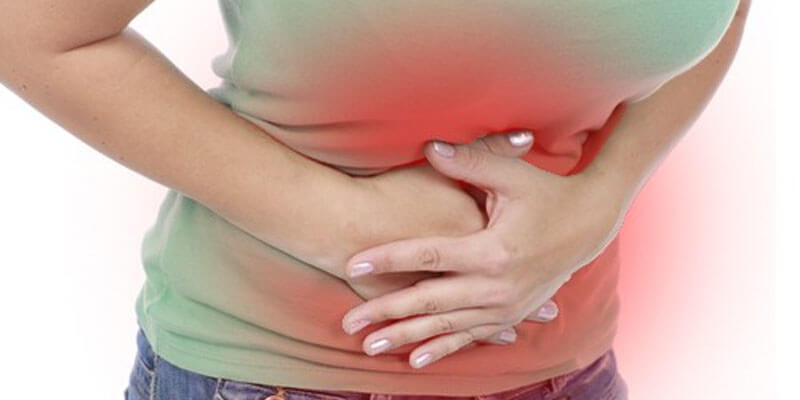Almost all of us have gas, although we are shy about talking about it. They are uncomfortable and embarrassing, but they do not put our health at risk.
What is the origin
Some carbohydrates (sugar, starches) are not digested in the small intestine by the shortage or absence of certain enzymes and pass to the large intestine, where bacteria break down food.
This produces hydrogen, carbon dioxide and, in a third of people, methane gases, which are released through the rectum.
Belching is another way that part of the air comes out of the stomach.
A force that pushes
They are also produced by the air we swallow when we eat, not just by food. If we eat in a hurry, we talk to lot when we eat or chew gum, we will have gas.
Most people produce around 1 to 4 pints of gas per day and gases are expelled about 14 times a day (up to 23 gases per day is considered normal).
Foods that cause gases
Most foods that contain carbohydrates can cause gas, however, fats and proteins cause little. Foods that cause gas include the following:
-
Broccoli and cabbage
Maybe you already knew, but not what is the reason. There is a complex sugar called rafinose, which is also found in beans, Brussels sprouts, broccoli, asparagus, other vegetables and whole grains, which causes gas during digestion.
-
Lactose
It is a natural sugar found in milk and dairy products, such as cheese, ice cream and processed foods, such as bread, cereals and salad dressings. Having gas after eating these foods can mean you have lactose intolerance.
-
Onions and artichokes
A sugar found in onions, artichokes, pears and wheat, called fructose, and which is also used as a sweetener in some soft drinks and fruit drinks, can also promote the formation of gases.
-
Fruits with sorbitol
It is a type of sugar found naturally in fruits, including apples, pears, peaches and prunes, which is a generator of annoying gases. Sorbitol is also used as an artificial sweetener in many dietary foods and in sugar-free candy and chewing gums.
-
Foods with starch
Most starches, including potatoes, corn, noodles and wheat, produce gas by breaking down in the large intestine. Rice is the only starch that does not cause gas.
-
Foods with soluble fiber
Fiber that dissolves easily in water and acquires a soft texture similar to a gel in the intestines, and found in the oat bran, beans, peas and most fruits, causes gas.
In contrast, insoluble fiber, such as wheat bran and some vegetables, which passes unchanged through the intestines, generates very little gas.
What happens when the gases are excessive?
If they are too frequent, they can mean another problem. For example, chronic belching can also indicate an upper gastrointestinal disorder, such as peptic ulcer disease, gastroesophageal reflux disease (GERD) or gastritis.
Another hidden disease may be Meganblase syndrome, or gas swelling syndrome, which may occur after surgery to correct GERD.














